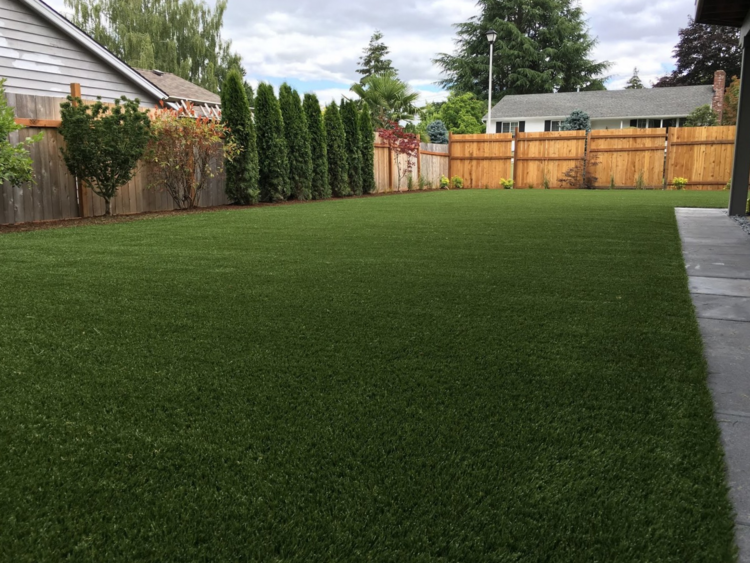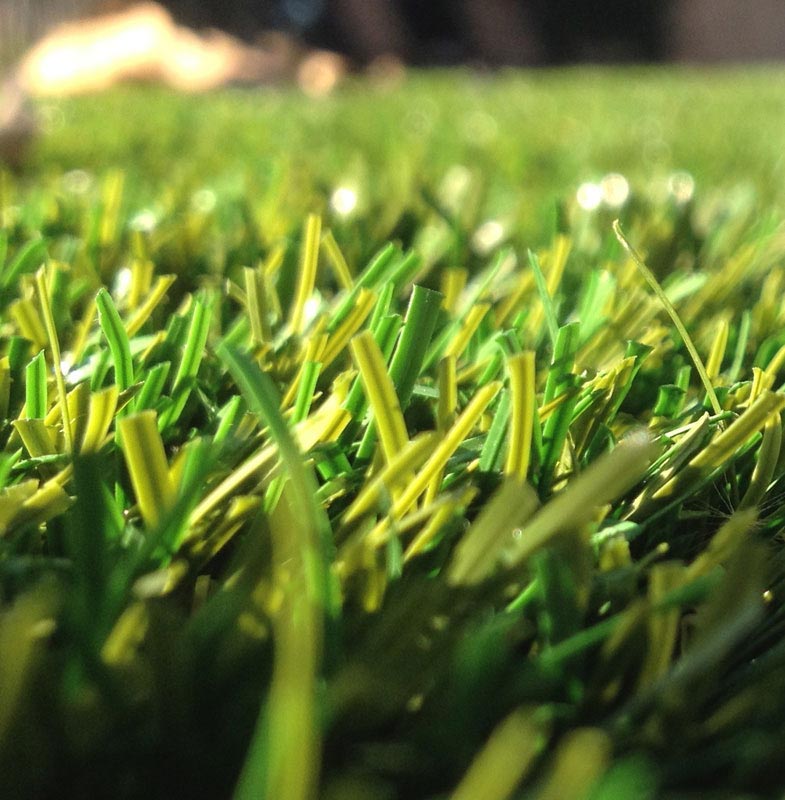Top Phoenix Turf Companies Providing High-End Synthetic Lawn Solutions
Top Phoenix Turf Companies Providing High-End Synthetic Lawn Solutions
Blog Article
Explore the Environmental Perks of Opting for Artificial Grass Solutions
The adoption of synthetic grass services presents an engaging opportunity to deal with pushing ecological challenges. By substantially minimizing water use and lessening the application of unsafe chemicals, these options not only advertise lasting landscaping yet also secure local environments.
Water Conservation Perks
One of the most considerable advantages of artificial turf is its capability to conserve water. In comparison, synthetic lawn does not require watering, dramatically reducing the general need for water resources.
By eliminating the need for normal watering, synthetic lawn contributes to lasting landscape techniques and assists minimize the environmental effect of extreme water intake. The conservation of water extends to the reduction of drainage, which can lead to dirt erosion and river air pollution.
In addition, the setup of fabricated turf enables home owners and communities to designate water sources a lot more effectively, concentrating on essential usages such as drinking water and agriculture. The change in the direction of synthetic turf not only promotes responsible water use but additionally straightens with more comprehensive environmental objectives focused on preserving all-natural sources.
As areas progressively focus on sustainability, the water conservation benefits of synthetic grass provide an engaging instance for its fostering in domestic and business landscape design tasks.
Reduced Chemical Usage
The shift to synthetic grass dramatically decreases the dependence on chemical treatments generally utilized in all-natural lawn maintenance. Standard turf management commonly involves the application of pesticides, herbicides, and fertilizers to advertise growth and control insects. These chemicals can pose threats to human wellness, local wild animals, and the atmosphere, adding to dirt and water contamination.
On the other hand, synthetic turf eliminates the demand for these unsafe materials. As soon as mounted, it needs very little upkeep, mostly containing routine cleansing and occasional infill replenishment. This reduction in chemical use not just profits the instant environment however also adds to broader environmental security. By minimizing the launch of synthetic compounds right into the environment, synthetic grass advertises much healthier dirt and water systems.
Additionally, the lack of chemical overflow related to synthetic grass setups aids shield local rivers from air pollution, supporting aquatic life and maintaining biodiversity. Arizona artificial turf. As communities progressively prioritize sustainable methods, going with synthetic grass offers a practical option that straightens with environmental preservation goals. Via this change, homeowner can delight in lavish eco-friendly spaces without endangering eco-friendly health and wellness, leading the way for a more lasting future
Lower Carbon Footprint
Additionally, the setup of synthetic grass can lead to significant water conservation. Natural grass require significant amounts of water for watering, which not just adds to the carbon footprint connected with water removal and therapy but also stress local water sources. In contrast, fabricated grass requires minimal maintenance, requiring no watering, therefore dramatically reducing water usage and its associated energy prices.
Additionally, the durability of synthetic grass adds to its decreased click to investigate carbon effect. With a life-span of approximately 15 years or more, the need for regular replacements is decreased, leading to much less waste and reduced energy usage in manufacturing and dealing with conventional turf options. In general, synthetic grass provides a sustainable option for environmentally mindful landscaping.
Environment Conservation
Environment conservation is an important consideration in the argument over landscape design choices, particularly when contrasting synthetic grass to natural lawn. Natural yard yards usually need substantial upkeep, consisting of using herbicides, plant foods, and pesticides, which can adversely affect local communities. These chemicals can seep into the dirt and rivers, harming indigenous flora and animals and interrupting local environments.
In contrast, fabricated turf offers a chance to minimize the ecological footprint of landscape design. By selecting artificial turf, homeowners can lessen the interruption of natural environments connected with typical lawn care techniques. Artificial grass removes the need for damaging chemicals, thus protecting nearby wild animals and preserving the honesty of surrounding communities. Furthermore, the setup of synthetic grass can result in the conversion of previous lawn locations right into more biodiverse landscapes, such as pollinator yards you could look here or indigenous plant locations, which can sustain regional wildlife.
Ultimately, the shift to synthetic turf not just preserves water and reduces upkeep initiatives however additionally fosters an extra unified relationship in between human tasks and the all-natural atmosphere, promoting environment conservation at the same time.
Long-Term Sustainability
Lasting sustainability is a crucial consider evaluating the advantages of artificial lawn over conventional yard yards. One of the most considerable benefits of synthetic grass is its longevity; it can last up to 15-20 years with marginal maintenance, whereas all-natural turf requires frequent reseeding and replacement. This long life minimizes the need for constant sources, such as water, plant foods, and pesticides, which are essential for keeping a healthy and balanced grass lawn.
In addition, synthetic grass adds to a reduction in carbon exhausts connected with grass care equipment. Standard grass usually need gas-powered lawn mowers, leaners, and blowers, all of which add to air pollution. Turf Full Report installation phoenix az. In comparison, fabricated grass removes the need for such devices, advertising a cleaner atmosphere
Moreover, the production of man-made lawn increasingly uses recycled products, enhancing its sustainability profile. As producers take on eco-friendly techniques, the environmental impact of man-made lawn proceeds to diminish.

Final Thought
The adoption of man-made lawn solutions provides substantial ecological benefits, including significant water preservation, lowered dependence on hazardous chemicals, and a lower carbon impact. Man-made turf help in maintaining natural environments by lessening land disturbance and promoting long-term sustainability with the use of resilient materials. Jointly, these factors highlight the potential of synthetic grass to contribute positively to environmental health and supply a sensible alternative to conventional landscape design methods in a progressively resource-conscious globe.
In comparison, fabricated grass does not require watering, dramatically lowering the total demand for water sources. By reducing the launch of synthetic compounds right into the community, fabricated grass advertises healthier dirt and water systems.
Additionally, the setup of man-made turf can result in significant water conservation. In contrast, man-made turf requires marginal maintenance, needing no watering, consequently substantially reducing water usage and its connected power expenses.

Report this page